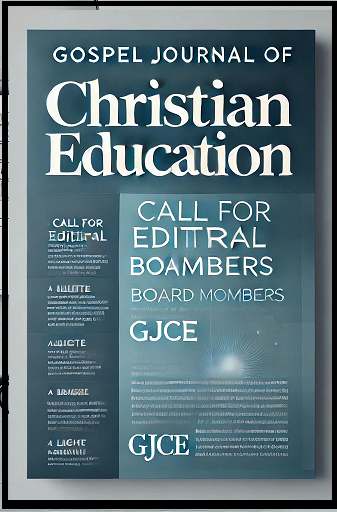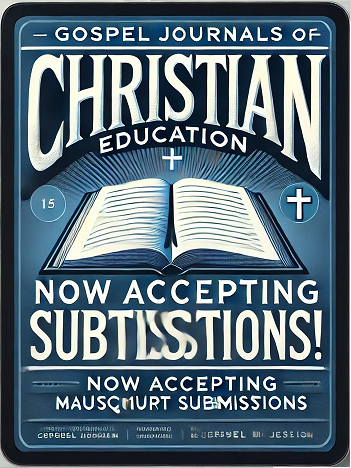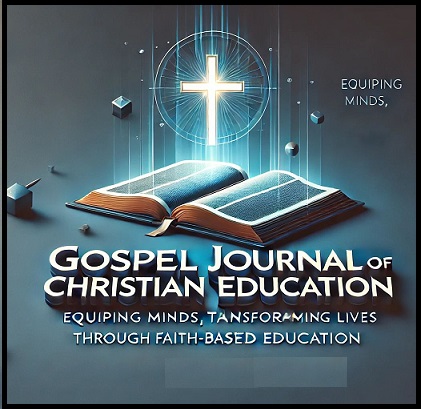Journal Aims and Scope
The Gospel Journal of Christian Education is dedicated to advancing scholarship and practice in the field of Christian education. Its primary aim is to provide a platform for exploring the integration of faith and learning, equipping educators, leaders, and scholars to effectively nurture spiritual growth and academic excellence within Christian contexts.
The journal welcomes research and insights across a broad spectrum, including biblical foundations of education, curriculum development, leadership in Christian schools, faith formation in youth and adults, and innovative teaching methodologies. By fostering a dialogue between theology, education, and practice, the journal seeks to inspire transformative approaches to Christian education globally.
Open Access
The Gospel Journal of Christian Education (GJCE) operates as a fully open-access journal, ensuring that all published articles are freely available to readers worldwide without any subscription fees. This model is intended to promote the widespread dissemination of research findings and enhance the accessibility of Christian education scholarship to a diverse audience, including academics, students, clergy, and interested laypersons.
Article-Processing Charges (APCs)
To support its open-access model, GJCE charges an Article Processing Charge (APC) to cover editorial and production costs. However, to encourage submissions and recognize the contributions of early adopters, GJCE offers waived APCs for the first 10 accepted articles. Following this introductory period, authors will be required to pay a standard APC, details of which will be transparently provided on the journal's website.
Publication and peer review process
The entire process is designed to take 6–12 weeks from submission to publication, depending on the extent of revisions required.Content overview
The publication process for GJCE is rigorous, transparent, and designed to maintain the highest standards of scholarly integrity:
Ethical Guidelines
GJCE adheres to strict ethical standards based on the guidelines of the Committee on Publication Ethics (COPE). Authors, reviewers, and editors are expected to uphold principles of integrity, accountability, and transparency. Key aspects include:
Any allegations of misconduct will be investigated thoroughly, and appropriate actions, including article retractions, may be taken.
Data and Materials Release
To promote reproducibility and transparency, GJCE encourages authors to make all relevant data, materials, and resources underlying their research available upon publication. Authors can provide supplementary materials as appendices or upload datasets to publicly accessible repositories, with proper links included in the article.
Competing Interests
Authors must disclose any potential conflicts of interest that could influence their research, interpretation, or reporting. This includes financial, institutional, personal, or professional relationships. The editorial team evaluates all disclosures to ensure the impartiality and credibility of the published work.
Plagiarism Detection
GJCE employs advanced plagiarism detection software to ensure that all submitted manuscripts are original and free from plagiarism. Any manuscript found to contain significant plagiarism or uncredited use of another author's work will be rejected, and further actions may be taken against the submitting author.
Copyright
The Gospel Journal of Christian Education (GJCE) operates under a Creative Commons Attribution (CC BY) license. This allows authors to retain copyright of their work while granting the journal permission to publish it. Readers and researchers are permitted to share, adapt, and use the content, provided proper credit is given to the authors and the journal.
This approach supports both the dissemination of knowledge and the recognition of authors’ contributions to the field.
GJCE is committed to creating an inclusive, transparent, and rigorous academic platform for Christian Education. Whether you are an established scholar or an early-career researcher, GJCE welcomes your contribution to this growing body of knowledge.



